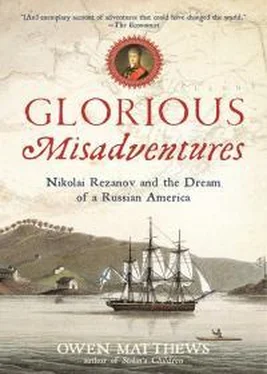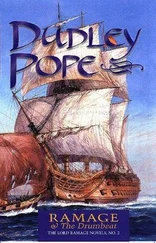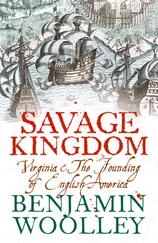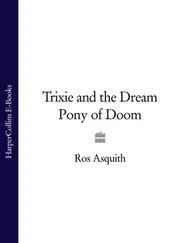1
Man and Nature
There, by the billows desolate,
He stood, with mighty thoughts elate,
And gazed . . .
Alexander Pushkin, The Bronze Horseman , 1833
Our Russian land can bring forth her own Platos,
And her own quick-witted Newtons . . .
Mikhail Lomonosov, The Delight of Earthly Kings and Kingdoms , 1741
No childhood could be more calculated to instil in a growing boy a sense of the supremacy of man over nature than growing up in St Petersburg as that great city rose from the marshes. In 1703 Peter the Great had ordered the construction of the first building on a sandy island on the northern bank of the Neva River, among mosquito-infested bogs criss-crossed by sluggish streams. A yearly levy of between thirty and forty thousand serfs – one conscript for every nine households in the empire – was brought on foot and under military escort to dig embankments and haul stone for the new palaces. Within two decades this slave army had transformed Peter’s plan into a great city of elegant houses and paved streets.
By the time Nikolai Petrovich Rezanov was born on 28 March 1763 in the modest Rezanov family house near the Admiralty, St Petersburg was already a European metropolis. ‘The city could be called a wonder of the world,’ wrote the awestruck Hanoverian ambassador, ‘was it only in consideration for the few years that have been employed in the raising of it.’1 St Petersburg boasted an academy of sciences, a university, an academic gymnasium and a fine neoclassical cathedral, and its grid of streets had been laid out according to the latest principles of town planning by the finest architects of Europe.
The city was defined by its artificiality. Its genesis and continued existence were wholly dependent on the person of the Tsar. St Petersburg was the ultimate Residenzstadt – a city built around an imperial court and financed by the state and, less willingly, the nobility. ‘St Petersburg is just a court, a confused mass of palaces and hovels, of grands seigneurs surrounded by peasants and purveyors,’ wrote the French encyclopedist Denis Diderot in 1774 after visiting at the Empress Catherine the Great’s invitation.2 As Rezanov was growing up in the 1770s only three of the city’s grand streets – Millionaya, Lugovaya and the English Line, later known as the English Embankment – had been fully completed. Behind these streets were rows of ‘wooden barracks as unpleasant as it is possible to imagine’, as the Empress herself noted,3 interspersed with the wooden houses of the lesser nobility, forced by decree to maintain residences in the capital.
Sophia Fridericke von Anhalt-Zerbst, called Ekaterina Alexeyevna by her adopted countrymen, had taken the Russian throne as the Empress Catherine II six months before Rezanov’s birth in a coup against her sad little husband, Tsar Peter III. Catherine, with her characteristic energy, saw the half-built city as a challenge. ‘I found St Petersburg almost entirely of wood and will leave it covered with marble,’ she wrote to a friend in July 1770.4 In the meantime the city was a strange mixture of the grand and the ramshackle. ‘The [palaces’] walls are all cracked, quite out of perpendicular, and ready to fall,’ wrote Francesco Algarotti, a Venetian visitor, who attributed the poor quality of the buildings to the fact that they were constructed ‘of obedience rather than choice’. In Italy ‘ruins generally form themselves’, quipped the Italian, ‘but in St Petersburg they are built from scratch’.5
Thus the Petersburg of Rezanov’s childhood was a vast building site. As a boy he would doubtless have joined the crowds of gentlemen in English-cut coats and the blinking Finnish fishermen who watched the great four- and five-ton blocks of granite manhandled from barges to create the new embankments along the Neva, an effort that began in 1763 and continued sporadically well into the next century. In 1781 Elizabeth, wife of Thomas Dimsdale, the English doctor who had been invited to inoculate Catherine and her children against smallpox, wondered if the titanic embankments would ever be finished. ‘The Russians are with great truth remarked to begin things with great spirit,’ Mrs Dimsdale observed. ‘And for a little time to go on very rapidly – then leave for some other object.’6
As a young gentleman Rezanov would have attended plays in French at Russia’s First State Artistic Theatre near the Admiralty. We know he learned German and French – most probably from foreign tutors, members of the thriving colony of Western European dancing masters, tailors, teachers, soldiers, sea captains and adventurers who had flocked to the new Russian capital following the powerful scent of money.
One of them was the French sculptor Étienne Maurice Falconet, who arrived in St Petersburg in 1766 at the Empress’s invitation. He spent twelve years creating his masterpiece, the equestrian statue of Peter the Great known as the Bronze Horseman (in Russian the Copper Horseman ), a monument not only to Peter the Great but also to Catherine’s claim to be heir to Peter’s greatness. The pedestal on which the statue stands is a 1,200-ton piece of Karelian granite known as the Thunder Stone, which was dragged bodily by 400 workers across four miles of forest before being placed on a barge stabilized by two warships before being hauled again by hand to its current position on Senate Square.7 The progress of the awesome stone and the repeated unsuccessful attempts to cast the statue itself at the state foundries on Liteiny Prospekt were an ongoing drama in the life of the city, the subject of gossip and incredulity throughout the young Rezanov’s boyhood.
The final ensemble was finally unveiled in 1782, and it is likely that the eighteen-year-old Rezanov was among the thousands of citizens and soldiers who turned out to witness the event. It was the kind of elaborate pyrotechnic ceremony Catherine loved. A giant pine box decorated with bunting, which had hidden the statue from public view, was collapsed with charges of gunpowder, accompanied by fireworks and massed drum rolls.8 In this Age of Enlightenment there could be no more dramatic proof that the vast powers of the Russian empress could bend land and sea to her will, and remake rude nature in the image of reason and order.
Half finished as it was, the St Petersburg in which Rezanov grew up was already very distant from the rest of Russia. ‘A capital at the edge of an empire is like an animal with its heart in the tip of its finger,’ observed Catherine’s confidant Lev Naryshkin.9 But that was the point: Peter wanted a Russia as it could be, not as it was. St Petersburg was a maritime city in a largely landlocked country. It was a European capital for a nation which just a century before had resembled a Tatar khanate more than any European principality.
The fortunes of the Rezanov family had closely mirrored those of Muscovy itself. Like many within the Russian nobility, the Rezanovs were not in fact Russians at all but descendants of Tatar nobles who had pledged allegiance to Russian princes. ‘Scratch a Russian and you find a Tatar,’ Joseph de Maistre, Savoy’s ambassador to St Petersburg, quipped to Napoleon.10 But for up to a quarter of the Russian aristocracy, it was literally true.
The principalities of Kiev, Muscovy, Tver, Novgorod and Pskov had been under Mongol-Tatar suzerainty from 1237 until 1480, when the Muscovite Prince Ivan III finally defied the Golden Horde and ended the payment of tribute. His grandson Ivan IV Grozny – the Terrible, or more accurately the Stern – took the Tatar capital of Kazan in 1552. Ivan’s musketeers annexed Astrakhan, the capital of the Tatars of the lower Volga, in 1556. That year a Tatar beg or lord, Murat Demir Reza – later Russified to Rezanov11 – swore fealty to the Muscovite tsar and was rewarded with noble status.
Читать дальше












